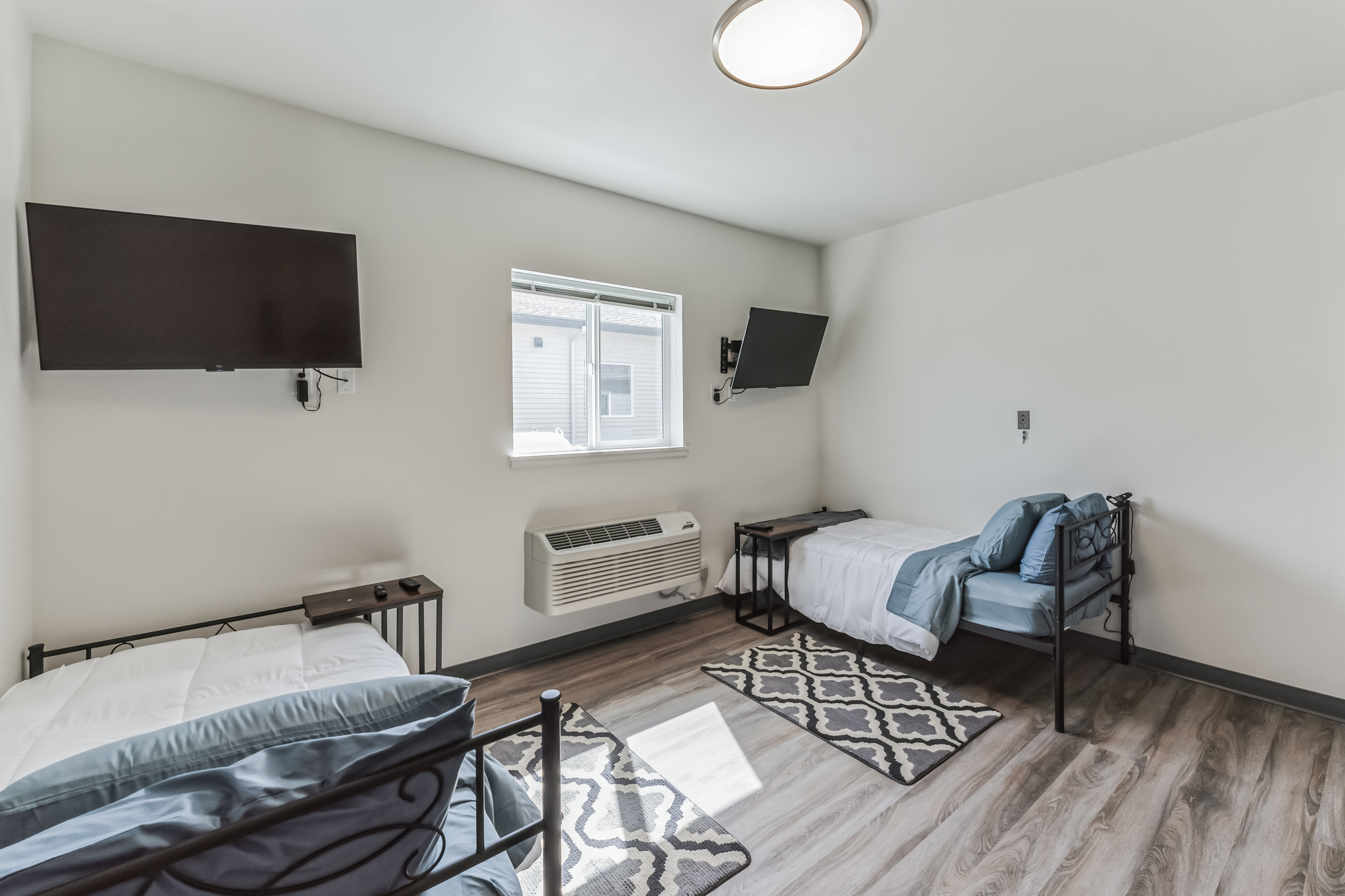
A relationship should feel safe, comforting, and intimate. However, when you are involved with an emotionally unavailable partner, it may leave you feeling like you’re always reaching out for connection and getting nothing back. You may ask yourself if there is something wrong with you. You may even think, “Why am I so lonely even when they are standing right beside me?”
This article will discuss emotional unavailability, its causes, its impact on the individual’s mental status, and what can be done about it. Whether you choose to stay in the relationship or leave, here’s what you should know.
Skip To
Table of Contents
What Is an Emotionally Unavailable Partner?
An emotionally closed-off lover cannot get in touch on an emotional level easily. They may be averse to painful discussions, resistant to openness, or struggle to describe their feelings. These individuals can also be affectionate, responsible, and caring, but when it comes to emotional closeness, a wall often exists.
Being involved with an emotionally unavailable partner or spouse is an experience that usually makes you feel confused, neglected, or inconsequential, regardless of whether you are dealing with an emotionally distant partner or emotionally unavailable husband.
Common Signs of an Emotionally Unavailable Person:
- They avoid talking about emotions or brush them off
- They withdraw during arguments instead of working through them
- They struggle with commitment or long-term planning
- They keep their emotional world private or locked away
- They seem disconnected even when physically present and spending time together
- They are logical, problem-solving, and non-emotional in expression
End the Emotional Pain. Get Your Life Back.
Feeling Depressed, Anxious or Struggling with Mental Health Illness? Get Safe Comfortable Mental Health Dual Diagnosis High-Quality Therapy From Counselors That Care. Begin Your Recovery Now.
Hotline: (509) 348-4077

Why Are Some People Not Emotionally Available?
The origins of emotional unavailability are too diverse and, to a great extent, are connected to what people experience before they become unavailable. Knowing what elicits such a response will guide you to approach the issue and protect your integrity in a humanistic manner.
1. Avoidant Attachment Style
Many emotionally unavailable people have an avoidant attachment style. This implies that they were taught at an early age to be self-reliant and hold back their feelings to prevent being hurt. They can be scared of emotional attachment or feel bombarded with intimacy.
2. Past Trauma or Hurt
Protective walls may occur as a result of previous relations, child neglect, or emotional abuse. Such partners may have been traumatized in the past and have learned to fear being vulnerable, hence withdrawing themselves emotionally.
3. Mental Health Issues
Depression, anxiety, or untreated trauma can be just some of the factors compromising emotional expression. A partner might not even realize that they are emotionally unavailable; they might not have the means to connect on an emotional level.

How It Feels to Be with an Emotionally Distant Partner
It is common to feel unfulfilled or lonely when the partner you are in a relationship with is emotionally unavailable. You may even come to the idea that you are giving your entire heart to it and only come back with little. This might eventually take a toll on your self-esteem, build up resentments, and even lead to mental health issues.
You Might Feel:
- Like your emotions aren’t being acknowledged
- That you’re always initiating conversations or affection
- Confused about where you stand in the relationship
- Drained from constantly trying to “fix” things
- Unseen, unheard, or unloved
As a result of this dynamic, burnout, depression, and emptiness occur very frequently. You can even start wondering whether you are the problem. However, do not forget that emotional needs are human needs, not weaknesses.
Get Help. Get Better. Get Your Life Back.
Searching for Accredited Dual Diagnosis Mental Health Centers Near You?
Even if therapy failed previously, or are in the middle of a difficult crisis, we stand ready to support you. Our trusted behavioral health specialists will not give up on you. When you feel ready or just want someone to speak to about counseling alternatives to change your life call us. Even if we cannot assist you, we will lead you to wherever you can get support. There is no obligation. Call our hotline today.
FREE 24/7 Dual Diagnosis Mental Health Services HotlineHow to Communicate with an Emotionally Unavailable Loved One
Although this may be frustrating, there is hope for the situation. Make sure the door to honest and gentle conversations is open, if you are comfortable doing so.
Tips to Start the Conversation:
- Use “I” statements to avoid blame.
Example: “I feel disconnected when we don’t talk about how we’re feeling.”
- Be calm and compassionate.
Do not call your partner cold or uncaring. Focus on how you feel.
- Ask open-ended questions.
Try: “Normally, how do you cope with challenging feelings?” or “What enables you to open up and feel safe?”
- Give them time.
An emotionally unavailable partner may not respond right away. Don’t expect a transformation overnight.
When to Seek Support or Set Boundaries
If your partner still remains withdrawn, does not let you in emotionally, and does not allow closeness, you must look at your needs. There is nothing wrong with focusing on yourself and what you need.
This is when you should really start considering yourself and what you need.
- You feel chronically anxious, rejected, or unimportant
- Your emotional needs are repeatedly unmet
- Communication feels one-sided or unsafe
- You’re constantly walking on eggshells to avoid conflict
Couples therapy or individual counseling may provide valuable tools and guidance. A conversation with a mental health professional can help you and your partner become aware of your attachment styles, enhance emotional expression, and foster reconnection.
How to Protect Your Emotional Health
It is essential to prioritize your needs when you are in a relationship with someone who has emotional risks. You deserve emotional closeness, affirming communication, and support.
Create Healthy Boundaries
Inform your partner of what you expect in terms of the type of relationship between two people. These could be examples such as:
- “At least once a week, we need to check in for a conversation that is beyond surface-level.”
“It’s important for me to check in nightly about how our days were.”
If your partner doesn’t respond, keep your boundaries firm. Boundaries aren’t punishments; they’re a demonstration of self-respect in action.

Build Support Outside the Relationship
Lean on trusted friends, family members, or a therapist. A broader community can make you feel like you are not alone and provide perspective when your significant other is distancing themselves.
Practice Self-Care and Mindfulness
Maintain awareness of what you are going through with either mindfulness or journaling. Make sure to take time every day to do something that uplifts your feelings of inner peace and self-worth. This can be yoga, a walk, a creative activity, or a special time with someone you love.
Comfortable Facilities & Amenities
High-Quality Mental Health Services & Behaviroal Health Substance Abuse Treatment
Rehab Centers TourRenowned Mental Health Centers. Serene Private Facilities. Inpatient Rehab Programs Vary.
Mental Health Helpline: (509) 348-4077Proven recovery success experience, backed by a Team w/ History of:
15+
Years of Unified Experience
100s
5-Star Reviews Across Our Centers
10K
Recovery Success Stories Across Our Network
- Low Patient to Therapist Ratio
- Comprehensive Dual-Diagnosis Treatment
- Complimentary Family & Alumni Programs
- Coaching, Recovery & Development Events
- Comfortable Onsite Medical Detox Center
Coping Strategies If Your Partner Won’t Change
It may happen that even after your attempts and sympathy, the emotionally closed partner stays closed. It comes in handy in cases like these:
- Keep emotional conversations short and purposeful
- Accept their current limitations without making excuses
- Choose activities that don’t require deep emotional sharing
- Celebrate minor improvements, even if they’re tiny
This will help you be less hurt and maintain your emotional health at the same time.
When It’s Time to Reevaluate the Relationship
The long-term relationships with the emotionally unavailable individuals can make you feel stuck, invisible, and tired. These are symptoms to watch out for that you need to make big decisions:
- Your emotional needs remain unfulfilled after repeated efforts
- Meaningful conversations end in silence or shutdown
- You feel drained more than supported
- Staying becomes more painful than moving forward
It is fair to leave a practice that never makes you feel emotionally satisfied.
Couples Therapy to Create Emotional Connection
Couples therapy can help but only if both partners are willing to participate. Therapists trained in emotional attachment can help with the following.
- Understanding attachment styles like avoidant attachment
- Learning healthier ways to share feelings and build emotional intimacy
- Developing tools to repair disconnection and build resilience
- Practicing responding to each other with empathy
Results do not come instantly with therapy, but with the combined efforts and sustained effort, it could save your relationship and make it an emotionally safe place.
Common Myths About Emotionally Unavailable Partners
These are some of the myths that usually interfere with healing:
- Myth: “My partner just doesn’t feel emotions deeply.”
- Truth: Many people who appear emotionally detached are feeling something- the problem is they don’t know how to express and feel safe doing so.
- Myth: “If I love them enough, they’ll open up.”
- Truth: Love alone is not sufficient; one will also need to feel emotional security. It may take time, and therapy can be helpful.
- Myth: “This is just who they are. If I accept that, I’ll be fine.”
- Truth: To constantly ignore the emotional side of things in the name of the truth is not suitable for your health.
Tips for Emotional Reconnection
Emotional intimacy takes time to develop. If both of you desire change, what you can do is follow the following successive steps.
- Create Emotional Check-Ins
Find a time during the week to communicate about how you are doing, how the relationship is progressing, and what requires special attention.
- Express Feelings Without Blame
Being open and vulnerable is scary. Begin with those soft “I feel…” statements, without attacking or blaming.
- Deepen Through Shared Experiences
Share things that naturally bring you together, such as a walk, cooking, or a creative project.
- Celebrate Emotional Wins
Acknowledge any small step toward emotional availability. Let them know when you feel close to them.
Frequently Asked Questions (FAQs)
-
Where in Spokane Valley, Washington, can you find treatment for an emotionally unavailable partner?
At We Level Up Washington, we offer individual counseling in our mental health programs that helps with emotional intimacy, attachment styles, and how to recover emotional distance.
-
What if I’m in Liberty Lake, Spokane, or Coeur d’Alene?
The best news: We Level Up Washington can help you no matter where you live. Regardless of whether you feel emotionally detached from your partner or unheard, there are likely healing solutions that are experience-driven and can be found with treatment.
Moving Forward: Healing for You and the Relationship
Engaging in a relationship with a partner who communicates their feelings openly is what you deserve. Whether you are able to continue the relationship or not, get help for yourself.
Here’s a roadmap to support you.
- Remain in touch with your feelings even when your mate is not as attentive as you are
- Seek therapy for yourself or as a couple
- Adjust your expectations, emotional growth takes time
- Permit yourself to step back if your needs are unmet
- Find a community that validates your emotional experiences
Final Thoughts
It is hard to live with an emotionally detached partner or friend. And the question which you may frequently ask yourself is, “what type of relationship do I deserve?”
Human beins have the need for emotional connection. Your needs have a right to be recognized, to be listened to, and to be appreciated by others. When you realize that your emotionally distant partner is unable to fulfill this need, you may need to reconsider the relationship.
Healing is not just possible, it’s within reach. We Level Up Washington is the right place to turn to for guidance on such challenging choices with specificity, empathy, and non-judgment. You are not alone.
World-class, Accredited, 5-Star Reviewed, Effective Mental Health Dual Diagnosis Programs. Complete Integrated Inpatient Rehab with Free Post Discharge Therapy Planning.
Hotline: (509) 348-4077End the Emotional Pain Rollercoaster. Gain Stability & Happiness Through Recovery Treatment. Start Mental Health Counseling Today. Get Free No-obligation Guidance by Behaviroal Health Specialists Who Understand Mental Health Recovery.
Summary
Call today to speak with our team and learn more about our programs. We Level Up Washington: (509) 348-4077. Your next step starts here.




